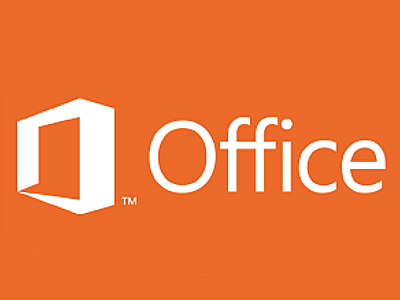Microsoft Caves, Allows Users to Transfer Office 2013
Fine, have it your way. Transfer Office 2013 to another PC if you need to.
Wording in the current licensing conditions for the retail version of Office 13 indicate that customers are not allowed to transfer the software to another computer even if the hard drive fails or the consumer upgrades to a new PC. The suite is essentially locked to one MAC address and cannot be deactivated, forcing customers to purchase another copy. The only way the software can be transferred is if Office 2013 came pre-installed and the machine fails under warranty.
As stated back in February, that's a big change from Office 2010. In the older retail-based suite, Microsoft limited installation to the licensed device and an additional portable device (laptop), the latter of which must be used by the single primary user of the licensed device. For the pre-installed OEM version, Microsoft wasn't as lenient, permanently assigning the license to the store-bought desktop or laptop.
Thus with Office 2013, Microsoft is essentially using the OEM model across the board – no transfers for anyone. Thankfully, that's about to change thanks to customer feedback, as the negative reactions to the new policy have provoked Microsoft into rethinking its approach to an obvious piracy-related stance with the Office suite.
"We have changed the Office 2013 retail license agreement to allow customers to transfer the software from one computer to another," said Jason Fark of the Office Team. "This means customers can transfer Office 2013 to a different computer if their device fails or they get a new one."
Fark said that the licensing agreement accompanying the Office 2013 software will be updated in a future release. In the meantime, the change is effective immediately and applies to Office Home and Student 2013, Office Home and Business 2013, Office Professional 2013 and the standalone Office 2013 applications.
"At Microsoft, we strive to make Office the very best product to help busy people and families get things done," he added. "A key ingredient in our formula for success is listening to our customers, and we're grateful for the feedback behind this change in Office licensing."
Here is the updated text explaining how the software can be transferred, essentially saying only one copy and reside on a single device at a time (no multi-installs):
Get Tom's Hardware's best news and in-depth reviews, straight to your inbox.
Q: Can I transfer the software to another computer or user?
A: You may transfer the software to another computer that belongs to you, but not more than one time every 90 days (except due to hardware failure, in which case you may transfer sooner). If you transfer the software to another computer, that other computer becomes the "licensed computer." You may also transfer the software (together with the license) to a computer owned by someone else if a) you are the first licensed user of the software and b) the new user agrees to the terms of this agreement before the transfer. Any time you transfer the software to a new computer, you must remove the software from the prior computer and you may not retain any copies.

Kevin Parrish has over a decade of experience as a writer, editor, and product tester. His work focused on computer hardware, networking equipment, smartphones, tablets, gaming consoles, and other internet-connected devices. His work has appeared in Tom's Hardware, Tom's Guide, Maximum PC, Digital Trends, Android Authority, How-To Geek, Lifewire, and others.
-
Good to see MS swollow that coporate pride/greed and give us an agreement that is (more) fair.Reply
-
tokencode I think what Winston Chruchhill once said about the United Stats definitely applies to Microsoft as well. "You can always count on them to make the right decision, after they have tried everything else. "Reply -
And soon M$ will allow new hardware to be sold with windows 7, and not the METRO fail! M$ will have fewer channel OEM partners, if this windows 8 madness continues! The customer demnds windows 7 on their new hardware, or it is no sale! The customer is allways right, M$, get a windows 7 option on new hardware, and get more M$, or continue with the METRO crap and get delisted form the stock exchange!Reply
-
Neverdyne When I first heard of this non-transferable thing, it was the first time in my life I've considered pirating Office. I don't think the majority of people mind paying developers for their work, but when these kinds of draconian measures are implemented it can turn an honest buyer into a full fledged pirate. When will companies understand?Reply -
memadmax Thanks to government regulation and taxation, new businesses can't rise up and challenge the big buys...Reply
-
nolarrow rad666And it's because of garbage like that, I use LibreOffice.Reply
I read the above post in the voice of these kids: https://www.youtube.com/watch?v=v2AlY17pLxo
You're most likely on linux, what other software were you going to use?
/rant
Back story: Tons of toms comments on how great linux is excited the tinkerer in me to try it out. Huuuuge waste of time. Pony up the $100 and scoop a copy of windows 7. At this point I might hate linux fan boys over apple fan boys, but its still up in the air.
-
sadsteve Kind of a bad assumption there. I also run a Windows OS (8) and I use the Libre Office suite (and a host of other open source programs). About the only Microsoft program I use (besides what comes with the OS) is Visual Studio.Reply
